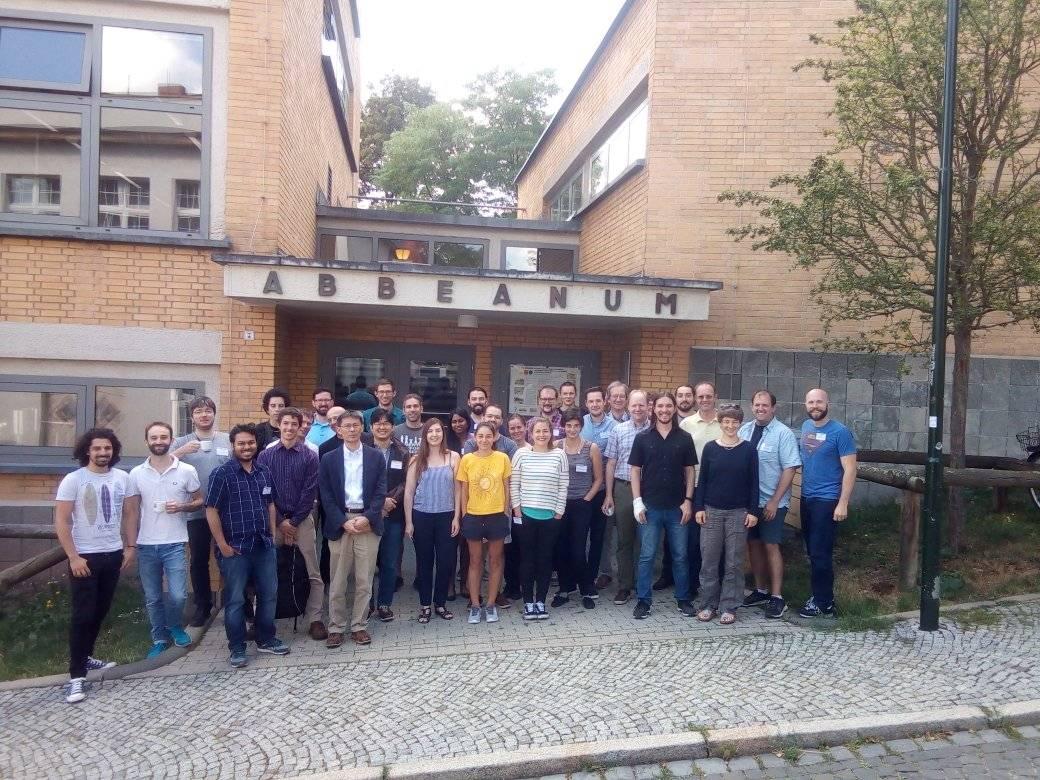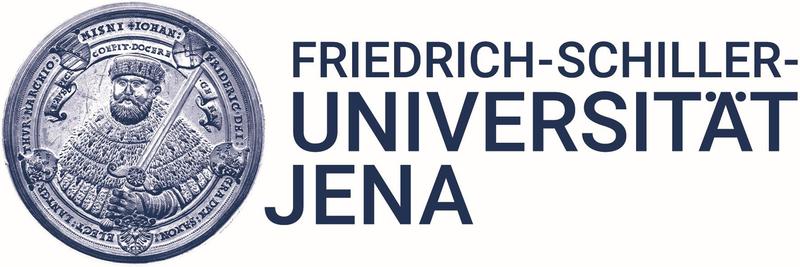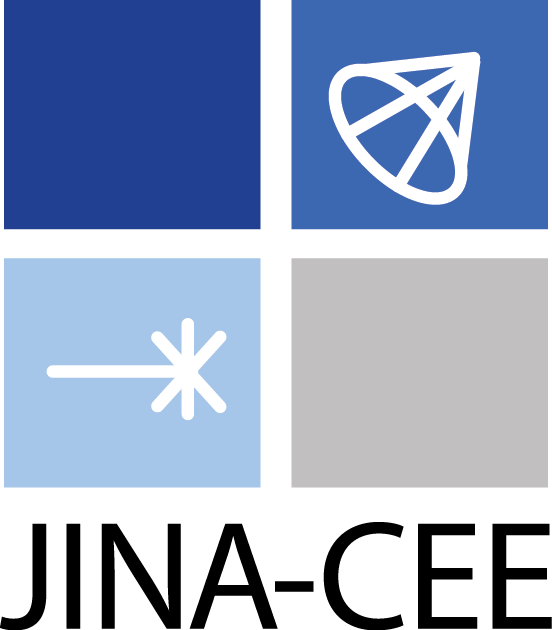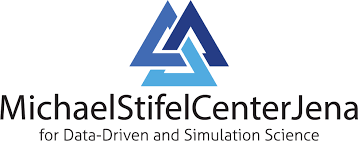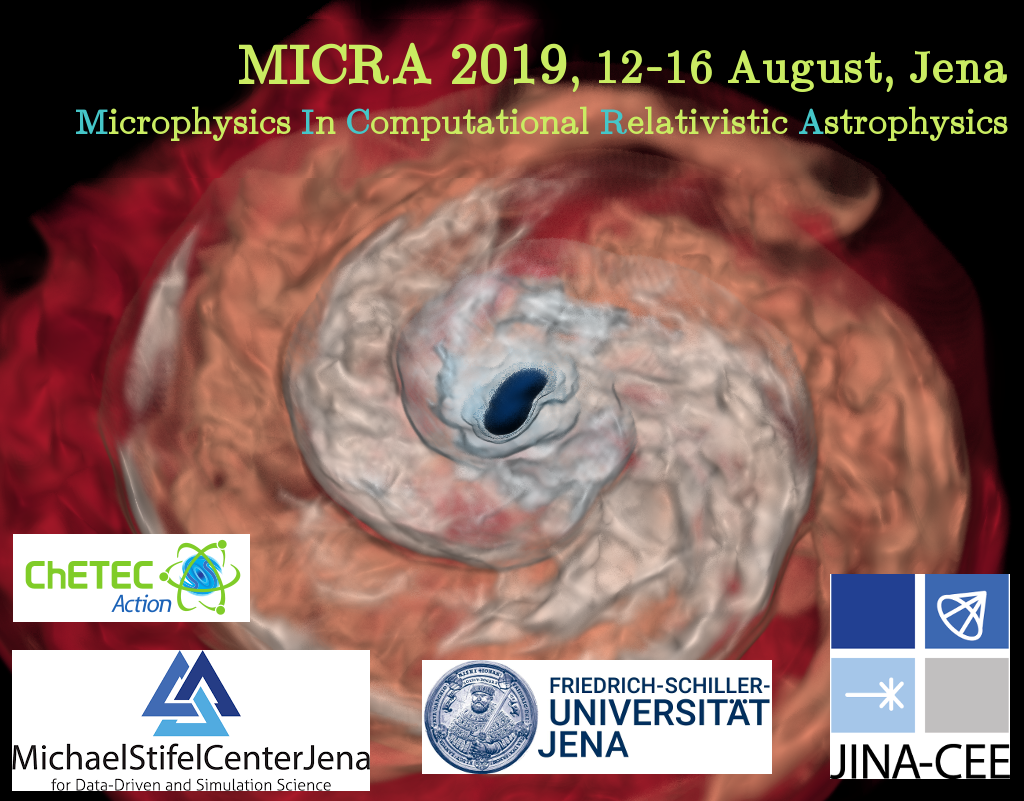
Welcome to MICRA2019!
MICRA, which stands for Microphysics In Computational Relativistic Astrophysics, is a biennial workshop focused on improving, discussing, and addressing the microphysics needs of relativistic simulations of astrophysical systems, core-collapse supernovae, compact object mergers, and gamma-ray bursts by bringing together nuclear and neutrino theorists and astrophysicists and computational modelers. This year marks the 6th installment and the 10th anniversary of MICRA, and the first since the revolutionary gravitational wave event GW170817.
MICRA generally rotates back and forth between North America and Europe. This year MICRA2019 will be held at the TPI in Jena, Germany from August 12-16, 2019. We are looking forward to an exciting workshop. The layout of MICRA2019 will be similar to previous MICRAs. We will have a few invited review talks and contributed talks of the major themes of the workshop with days generally focused on different microphysics and their impact on astrophysical systems. There will be ample time for discussion and break-out sessions in the afternoon. The days will focus on:
- The Nuclear Equation of State. The nuclear equation of state is a staple of simulations of relativistic astrophysics. The relationship between the density, temperature, and composition of the matter to the pressure sets the structure of neutron stars, protoneutron star, supermassive neutron stars, and hypermassive neutron stars.
- Neutrinos. Due the extreme densities and temperatures, the thermodynamics and dynamics of relativistic astrophysical systems are often driven by neutrino interactions, mainly emission, but also absorption.
- Nucleosynthesis. Massive stars, core-collapse supernovae and compact object mergers are the sites where many of the elements in nature are formed. The sensitivity to the reaction rates, neutrino interactions, and the implications of GW170817 have brought nucleosynthesis in relativistic systems to the forefront of computational astrophysics.
At MICRA we are interested in both the theory of this microphysics and the practical details on implementation in computational simulations. We hope you will join us in the discussion! See you in Jena.
Invited Speakers
- CURTIS Sanjana (NC State U)
- KNELLER James (NC State U)
- LIEBENDOERFER Matthias (U of Basel)
- PEREGO Albino (U of Trento)
- RICHERS Sherwood (NC State U)
- ROSSWOG Stephan (Stockholm U)
- SCHNEIDER Andre (Stockholm U)
- TOLOS Laura (Goethe U)
- VARTANYAN David (Princeton U)
- VASSH Nicole (U of Notre Dame)
Scientific Organizing Committee
- BERNUZZI Sebastiano (Jena U)
- COUCH Sean M. (Michigan State U)
- FROHLICH Carla (NC State U)
- MOESTA Philipp (UC Berkley)
- O'CONNOR Evan (Stockholm U)
Local Organizing Committee
- ORTIZ Nestor (Jena U)
- ENDRIZZI Andrea (Jena U)
- NEDORA Vsevolod (Jena U)
